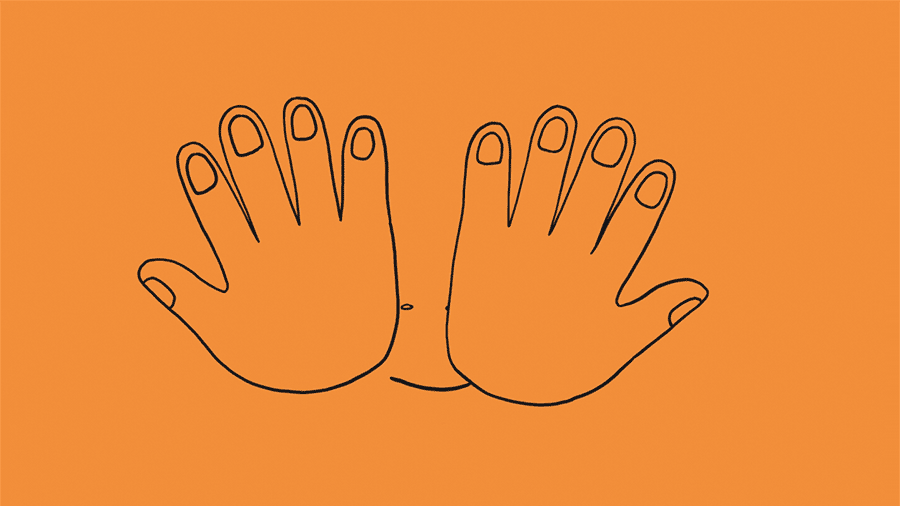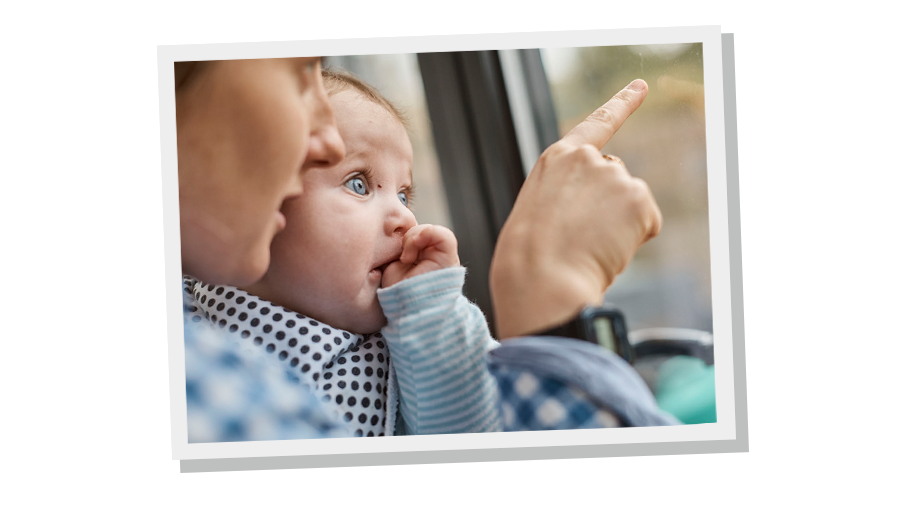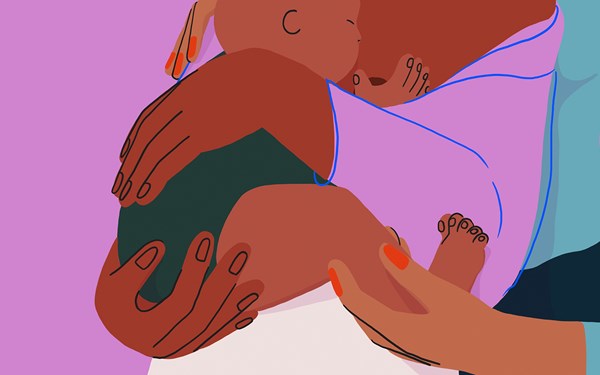Bonding with your baby before they're born
Did you know your baby is bonding with you just by hearing your voice? They can hear your voice at the 6–7 month mark of pregnancy.
You can develop this more by talking to your bump if that feels good to you. Tell them what you’re seeing, thinking and doing.
Bonding with your baby after they're born

Every pregnancy is unique, meaning your journey to bond with your baby will be different every time.
For some, a connection is instant. For others, it might take a little while. It’s OK if the bond grows over time. Parenting is a lifelong journey and you might need some time to adapt to the changes it brings.
Sometimes, parents experience negative thoughts and feelings about their baby. If this happens, speak to your midwife, health visitor or GP to get some extra support.
Ways to build an emotional connection with your baby
Some of these ideas may help you.
- Sensitivity
Look out for your baby’s cues and communications about what they need and want. Smile at them when they smile at you. Make noises back when they gurgle at you. - Responsiveness
Give your baby what they need or help them meet their own needs. This could be changing their nappy or supporting them to go to sleep. - Warmth
Respond kindly and helpfully when they communicate with you. It might feel silly, but explaining things to them, even when they're little, can help. For example "You're hungry, so I'm going to get you something to eat."
Building a good relationship with your baby is one of the most important things you can do for them. They understand the world based on how you interact with them. If your interactions are positive, it’ll support a positive view of the world long into adulthood.
There are a few things you can try to make your bond stronger:
- Have lots of skin-to-skin contact – touch and smell are two of the most important senses in the bonding process.
- Have lots of face-to-face time – you can look at one another and read each other's facial expressions. This could also help you to understand your baby's mood.
- Smile, talk, sing, cuddle and play with your baby as much as possible. We have practical advice on things you can do.
- Learn some baby massage techniques – this could also come in handy when you're trying to calm a crying baby.
Signs your baby is bonding with you
0–3 months
- smiles back at you
- turns towards you when you speak
- shows interest in your face
- follows objects and movement.
3–6 months
- shows joy when interacting with you
- smiles a lot during playtime
- makes sounds like babbling, cooing, or crying – when happy or unhappy.
4–10 months
- smiles, giggles, and babbles
- has playful exchanges with you
- starts to have back-and-forth gestures such as giving and taking.
10–18 months
- plays peek-a-boo and patty cake with you
- uses sounds like ma, ba, na, da and ga
- uses gestures to show needs: pointing, waving or giving
- recognises their name.
Continuing to bond with your child as they grow

Here are some ways to carry on building emotional attachment as your child grows:
Eye contact
Children love to gaze at you, so look at your child affectionately.
Facial expression
When talking to your baby, make sure your expression is calm and attentive so they feel secure.
Tone of voice
Even if your child is too young to understand the words you use, they can understand the difference between a harsh or distracted tone and one that is tender, interested or concerned.
Touch
You can show love and affection in how you wash, lift, or carry your baby. And by how you give your older child a warm hug, a gentle touch on the arm, or a reassuring gentle pat on the back.
Body language
Relaxed and calm body language will help your child feel safe. Sudden, aggressive movements can frighten a child. If you relax and sit comfortably, your child will feel more able to approach and interact with you.
If you need help bonding
There's help available if you don't think bonding with your baby is going as well as it could. Your midwife, health visitor or GP can support you. You could also try talking with a close friend or family member.
You can speak to one of our Helpline counsellors by calling 0808 800 5000 or emailing [email protected]
Get more tips to help you bond with your baby

We’ve got lots of fun and easy tips for bonding with your baby. Talking, singing and playing are all great for bonding, but they also help your baby’s brain to grow.
But it’s not just about singing or talking at your baby. Brain-building happens when you and your little one are interacting with each other.
Sign up for our Look, Say, Sing, Play emails today.
You can help us to support more families.
Get more parenting advice
Illustration credits
Top banner and page body illustrations by Maria Grejc.
Parenting advice row: see individual pages for details.





